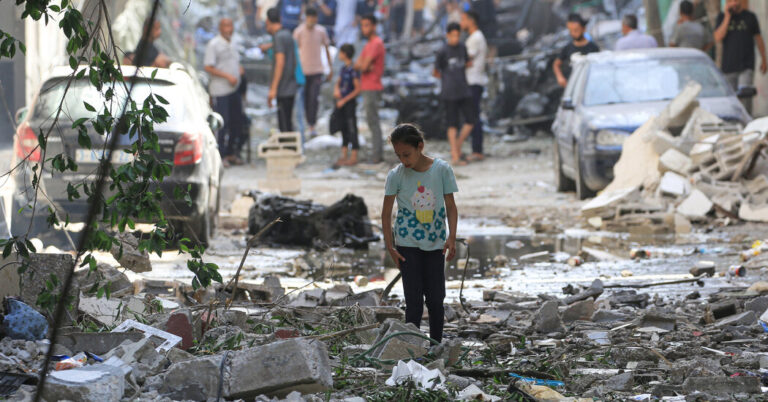Israelis briefly breathed a collective sigh of relief on Saturday, when the army announced it had rescued four hostages held in Gaza for eight months after being captured during the October 7 attack by Hamas.
The four hostages were captured during the Nova music festival on October 7 and were rescued during an operation in the central Gaza town of Nuseirat early Saturday. The mission left many Palestinians dead, including women and children. News of the rescue raised new questions about the fate of those who remain in captivity and a proposed ceasefire agreement.
How many hostages are still being held in Gaza?
There are approximately 120 captives remaining in Gaza. The Israeli army confirmed that at least 30 of them were dead.
Earlier this month, the Israeli military informed the families of four hostages that they were dead and that their bodies were being held by Hamas. In May, the military recovered the bodies of nine hostages and the families of two captured Thai citizens were informed that their bodies were still being held in Gaza.
Will Israel undertake more rescue operations?
Dozens of proposed rescue missions have not been successful, for fear that hostages or soldiers could lose their lives in the process, according to Israeli defense officials.
Israeli troops managed to rescue only seven hostages alive during three separate military operations. In December, Israeli troops accidentally shot and killed three hostages in Gaza who were trying to reach safety.
How did Hamas react to the operation?
In a statement on social media, Abu Obaida, the military spokesman for the Al-Qassam Brigades, accused Israel of a “complex war crime” and suggested that the rescue operation had endangered the remaining hostages and would have “a negative impact on their conditions and living conditions”. lives.”
What do the families of the hostages say?
The Hostages and Missing Families Forum, which represents the families of captives, held a rally in Tel Aviv on Saturday, as it has done throughout the war. The gathering attracted thousands of people to celebrate the rescue operation. But the group stressed the urgency of repatriating all remaining prisoners in Gaza.
“The joyful news of the return of Shlomi, Noa, Almog and Andrey to their families thanks to a military operation reminds us all that, for 36 weeks, 120 hostages have been waiting to return home,” the group said in a statement referring to on behalf of the freed captives and who pushed for acceptance of a proposed ceasefire agreement between Israel and Hamas that would return the remaining hostages home.
What is happening with the proposed ceasefire agreement?
President Biden in late May drew up a road map for a three-phase plan that would begin with an immediate, temporary ceasefire and work toward a permanent end to the war and the reconstruction of Gaza.
In the first phase, both sides would observe a six-week ceasefire, Israel would withdraw from Gaza’s main population centers and a number of hostages would be released, including women, the elderly and the wounded.
Israel and Hamas will continue to negotiate to achieve a permanent ceasefire. If they succeed, the deal would enter phase two, with the complete withdrawal of the Israeli army from the enclave.
All hostages and more Palestinian prisoners would be released. In the third phase, Hamas would return the bodies of the deceased hostages and a period of reconstruction, supported by the United States, European countries and international institutions, would begin in Gaza.
Israeli Prime Minister Benjamin Netanyahu faces competing pressures from the United States and other allies to end the war and of two far-right partners in his government coalition who threatened to overthrow his government if Israel agreed to a deal that would end the war without eliminating Hamas.
Hamas previously said it responded “positively” to the plan, but informed mediators that the group would not approve a deal that did not pave the way for a permanent ceasefire, a total withdrawal of Israeli troops and a “serious and serious agreement”. a real deal” to exchange Palestinian prisoners for hostages.
It is unclear what effect the latest hostage rescue operation will have on the negotiations.


